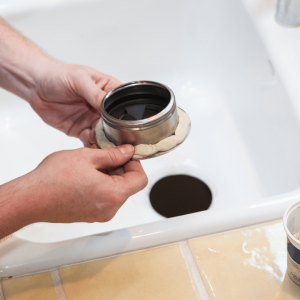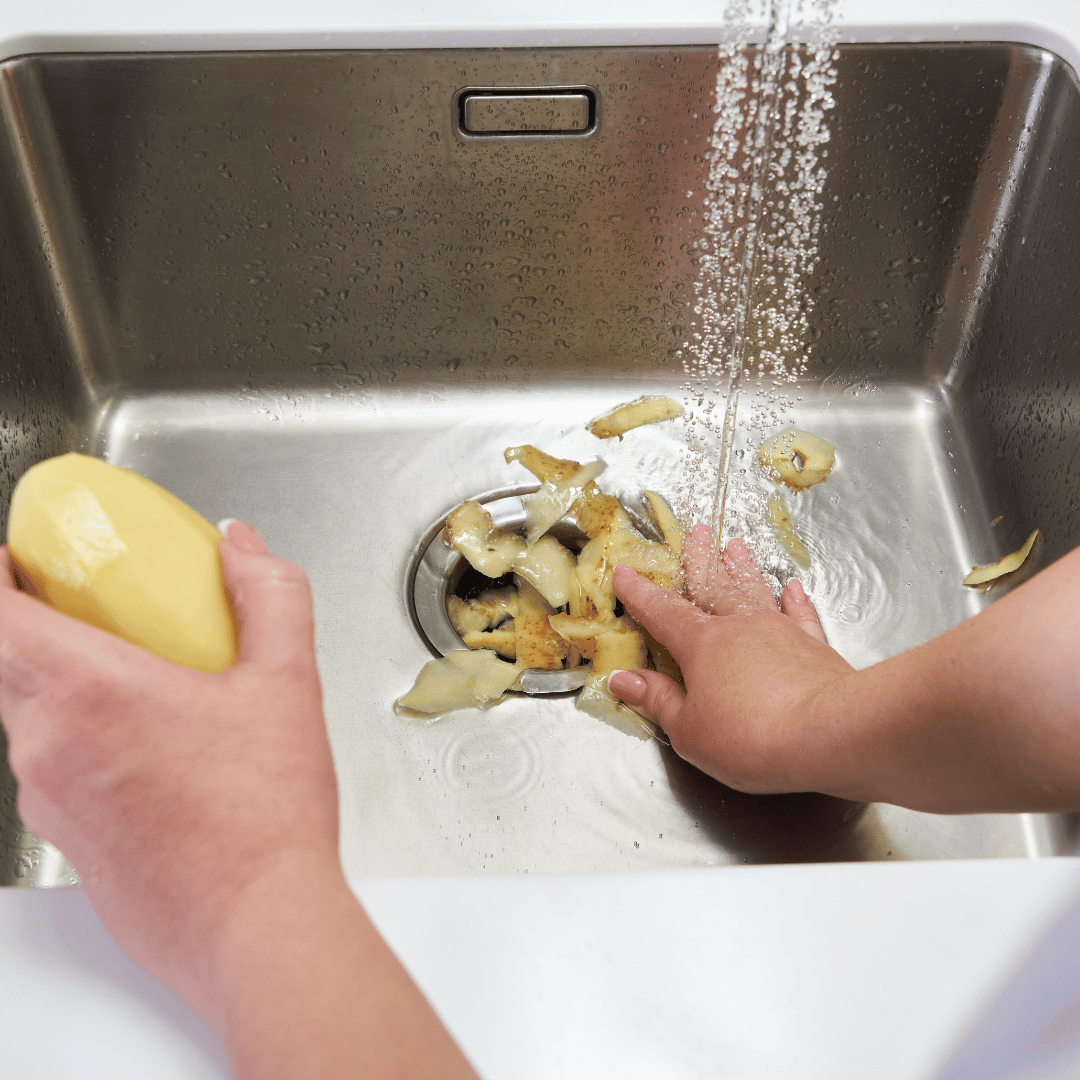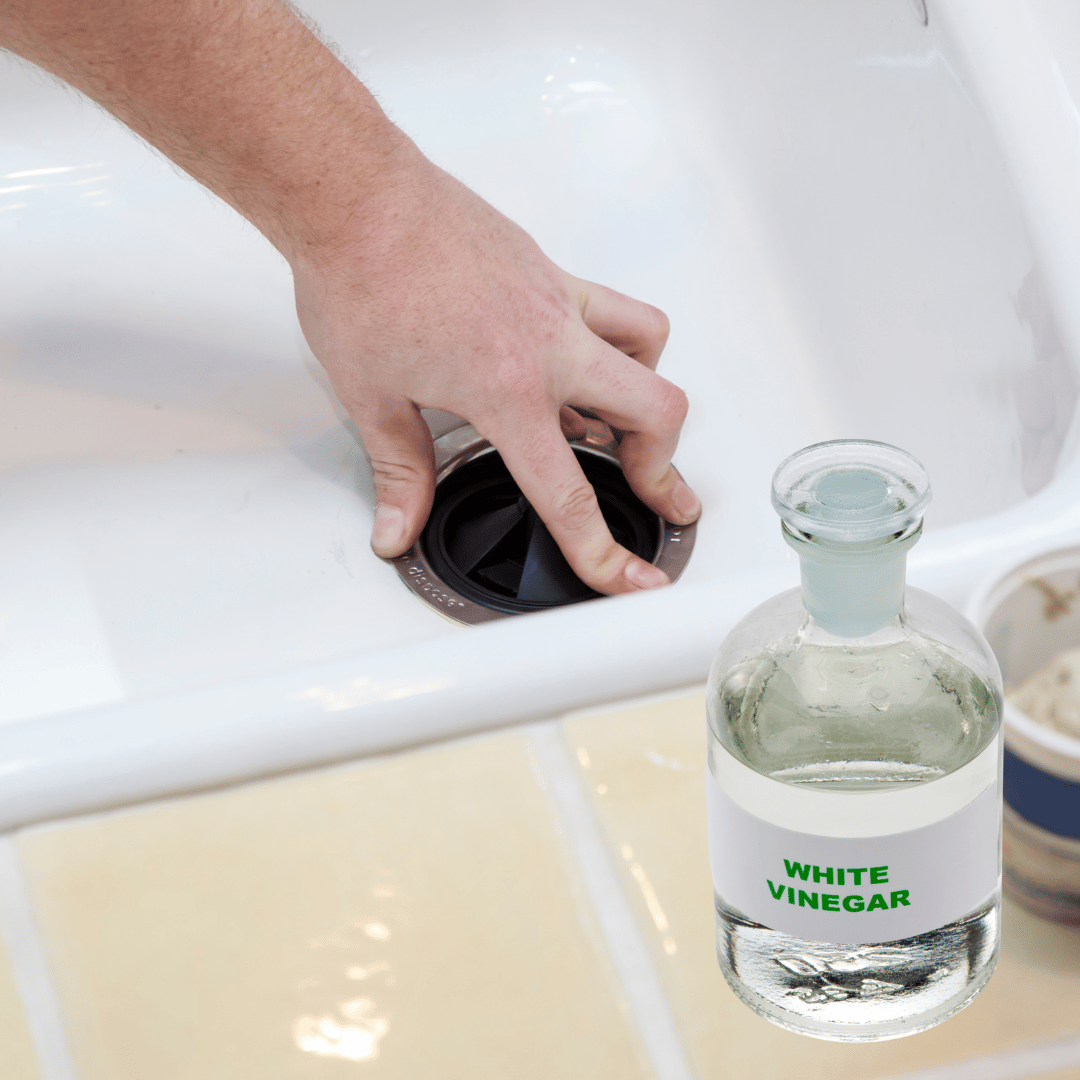
Effective Solutions and Tips on How to Tackle a Garbage Disposal That Smells Bad
A garbage disposal is a handy appliance that helps keep your kitchen clean by grinding up food waste and preventing clogs in your sink. However, it can become a source of unpleasant odors if not properly maintained. If you’ve noticed a bad smell coming from your garbage disposal, you’re not alone. This is a common issue, often resulting from food particles and grease buildup.
Addressing these odors promptly is crucial not only for maintaining a fresh-smelling kitchen but also for ensuring the long-term efficiency of your disposal. In this guide, we’ll explore practical steps for eliminating bad smells from your garbage disposal and discuss the importance of regular maintenance as part of your Interior Home Maintenance routine. By following these tips, you can keep your garbage disposal—and your entire kitchen—smelling fresh and clean.
How Do You Get the Smell Out of a Garbage Disposal?
Dealing with unpleasant smells emanating from your garbage disposal can be a frustrating experience, but there are several effective methods to tackle this problem. Here’s how you can get rid of those stubborn odors:
- Regular Cleaning:
- Baking Soda and Vinegar: One of the simplest and most effective ways to neutralize garbage disposal odors is by using baking soda and vinegar. Start by pouring a cup of baking soda into the disposal, followed by a cup of vinegar. Let the mixture sit for about 15 minutes to allow it to work its magic. Afterward, rinse with hot water to flush out any remaining residue. This method helps to break down food particles and neutralize unpleasant smells.
- Ice and Salt Method:
- Ice Cubes and Salt: Grinding ice cubes and salt in your disposal can help clean the blades and remove any residue that might be causing bad odors. Simply toss a few ice cubes and a handful of salt into the disposal, then turn it on. The ice helps to dislodge debris, while the salt acts as an abrasive cleaner.
- Citrus Peels:
- Lemon or Orange Peels: For a fresh and pleasant scent, grind citrus peels such as lemon or orange in your garbage disposal. The natural oils in the peels help to freshen the unit and eliminate odors, leaving your kitchen smelling vibrant and clean.
By incorporating these simple cleaning techniques into your routine, you can effectively combat garbage disposal odors and maintain a fresh-smelling kitchen. Remember, regular maintenance is key to preventing these smells from returning.
How Do You Get the Smell Out of a Garbage Disposal?
If your garbage disposal has developed an unpleasant odor, there are several effective methods to eliminate the smell and keep your kitchen fresh. Here’s a step-by-step guide on how to tackle the problem:
Regular Cleaning
- Baking Soda and Vinegar
- Method: Pour a cup of baking soda into the disposal followed by a cup of white vinegar. Allow the mixture to sit for 15 minutes. The combination of baking soda and vinegar helps to break down food particles and neutralize odors. After 15 minutes, flush the disposal with hot water to wash away any remaining debris.
- Benefits: This method is not only effective but also natural and non-toxic, making it a safe choice for regular use.
Ice and Salt Method
- Ice Cubes and Salt
- Method: Place a few ice cubes and a handful of coarse salt into the garbage disposal. Turn on the disposal and let it run. The ice helps to dislodge food particles stuck on the blades and inside the disposal, while the salt acts as an abrasive cleaner.
- Benefits: This technique is particularly useful for cleaning the disposal blades and grinding away stubborn residue, which can contribute to bad smells.
Citrus Peels
- Lemon or Orange Peels
- Method: Drop citrus peels, such as lemon or orange, into the running disposal. The natural oils in the peels help to freshen the disposal and leave a pleasant scent.
- Benefits: Citrus peels not only provide a fresh aroma but also help to clean and deodorize the disposal, making them a great option for maintaining a pleasant kitchen environment.
By following these cleaning techniques regularly, you can effectively manage and prevent unpleasant odors from your garbage disposal. Consistent maintenance will help keep your disposal running efficiently and ensure your kitchen remains fresh.
Why Does My Garbage Disposal Smell Like the Sewer?
If your garbage disposal smells like the sewer, it’s often a sign of underlying issues that need addressing. Here are some common reasons why your disposal might emit sewer-like odors and what you can do about them:
Clogged Drain Lines
- Description: Over time, food particles, grease, and other debris can accumulate in the drain lines leading from your garbage disposal. This buildup can create blockages that trap waste and produce foul odors.
- Solution: To address this, start by cleaning the disposal with baking soda and vinegar to help break down the debris. For more stubborn clogs, you might need to use a drain snake or call a professional plumber to clear the lines.
Bacterial Growth
- Description: Bacteria thrive in moist environments with food residue, such as a garbage disposal. As food decomposes, it creates a breeding ground for bacteria, which can produce unpleasant smells similar to sewer gas.
- Solution: Regularly cleaning the disposal with baking soda, vinegar, or citrus peels can help reduce bacterial growth and eliminate odors. Ensure you’re also flushing the disposal with hot water to remove any leftover particles.
Inadequate Flushing
- Description: If the disposal isn’t properly flushed with water, food particles can remain in the unit and begin to decompose, causing bad smells.
- Solution: Always run cold water while using the disposal to ensure that food particles are thoroughly washed away. After use, let the water run for a few seconds to clear the system completely.
By addressing these common issues, you can eliminate sewer-like smells and keep your garbage disposal functioning properly. Regular maintenance and proper usage are key to preventing these odors from recurring.
How to Fix a Smelly Insinkerator
If your Insinkerator garbage disposal is emitting unpleasant odors, it’s essential to address the issue promptly to maintain a fresh kitchen environment. Here’s how to fix a smelly Insinkerator and restore it to its optimal condition:
Clean the Disposal
- Baking Soda and Vinegar
- Method: Pour about a cup of baking soda into the disposal followed by a cup of white vinegar. Allow the mixture to sit for 15 to 20 minutes to help neutralize odors and break down any food residue. Afterward, rinse the disposal with hot water to flush out any remaining debris.
- Benefits: This combination helps to disinfect and deodorize the disposal naturally without harsh chemicals.
- Commercial Cleaners
- Method: Use a commercial garbage disposal cleaner specifically designed to remove odors and buildup. Follow the manufacturer’s instructions for best results.
- Benefits: Commercial cleaners can be effective for tackling stubborn odors and residue that home remedies might not fully address.
Inspect and Clear Clogs
- Check for Obstructions
- Method: Turn off the disposal and use a flashlight to inspect the inside for any visible obstructions or clogs. Use tongs or pliers to remove any debris you can reach. For more significant clogs, use a drain snake to clear the lines.
- Benefits: Removing obstructions can help eliminate odors caused by trapped food particles.
- Manual Rotation
- Method: Use an Allen wrench to manually rotate the disposal’s flywheel from underneath. This can help dislodge any debris stuck in the blades and improve the disposal’s performance.
- Benefits: Manual rotation helps ensure that the disposal blades are clear and functioning correctly.
Check the Seal
- Inspect the Seal
- Method: Examine the rubber seal around the disposal for signs of wear or damage. If the seal is cracked or deteriorated, it can lead to unpleasant odors escaping from the unit.
- Benefits: A properly sealed disposal prevents odors from escaping and maintains efficient operation.
- Replace if Necessary
- Method: If the seal is damaged, replace it with a new one. Most hardware stores carry replacement seals that are compatible with Insinkerator models.
- Benefits: Replacing a damaged seal ensures that your disposal remains airtight and odor-free.
By following these steps, you can effectively address and eliminate unpleasant smells from your Insinkerator garbage disposal. Regular cleaning and maintenance are essential to keep your disposal running smoothly and your kitchen smelling fresh.
How Do You Get Rid of Rancid Garbage Smell?
Rancid garbage smells can be particularly troublesome, often resulting from decomposing food or other waste trapped in your garbage disposal. Here are effective methods to tackle and eliminate these unpleasant odors:
Use Freshening Agents
- Citrus Peels
- Method: Cut lemon or orange peels into small pieces and drop them into the running garbage disposal. The natural oils in the citrus peels help to neutralize odors and leave a pleasant, fresh scent.
- Benefits: Citrus peels not only freshen the disposal but also help clean the blades and remove residual odors.
- Essential Oils
- Method: Add a few drops of essential oils such as peppermint or eucalyptus to a cotton ball and place it in the disposal. Run the disposal with cold water to disperse the scent.
- Benefits: Essential oils provide a strong, fresh fragrance and can help mask persistent odors.
Clean the Disposal Thoroughly
- Baking Soda and Lemon Juice
- Method: Sprinkle a generous amount of baking soda into the disposal, followed by a few tablespoons of lemon juice. Let it sit for about 15 minutes, then flush with hot water.
- Benefits: The combination of baking soda and lemon juice helps to break down residues and neutralize rancid smells effectively.
- Vinegar and Baking Soda
- Method: Pour a cup of baking soda followed by a cup of white vinegar into the disposal. Allow the mixture to fizz and sit for 15 to 20 minutes before rinsing with hot water.
- Benefits: This mixture helps dissolve food particles and eliminate odors, leaving your disposal clean and fresh.
Regular Maintenance
- Flush with Hot Water
- Method: Regularly run hot water through the garbage disposal for several minutes to help wash away food particles and grease that can contribute to rancid smells.
- Benefits: Flushing with hot water helps to keep the disposal clean and prevents buildup that can cause odors.
- Preventive Measures
- Method: Avoid putting large amounts of greasy or fatty foods down the disposal. Instead, scrape off excess grease into the trash before rinsing dishes.
- Benefits: Preventing grease buildup helps to reduce the likelihood of rancid smells and keeps your disposal functioning optimally.
By employing these techniques, you can effectively combat and prevent rancid garbage smells in your disposal. Consistent maintenance and the use of freshening agents will help keep your kitchen smelling clean and pleasant.
Why Do I Keep Smelling Rotting Garbage?
If you’re consistently smelling rotting garbage, even after cleaning your disposal, there might be several underlying causes. Understanding these reasons can help you address the problem effectively:
Hidden Food Particles
- Description: Food particles can become trapped in hard-to-reach areas of the garbage disposal or drain lines. These particles can decompose and emit a strong, unpleasant odor.
- Solution: To address this, ensure thorough cleaning of the disposal and drain lines. Use a combination of baking soda, vinegar, and hot water to break down and flush away any trapped debris. A drain snake can also be used to reach deeper clogs.
Clogged or Dirty Drain Pipes
- Description: Over time, drain pipes can accumulate grease, food waste, and other materials that contribute to foul smells. If the main drain is clogged or dirty, it can affect the odor in your disposal.
- Solution: Clean the drain pipes using a mixture of baking soda and vinegar followed by hot water. For persistent clogs, consider using a drain cleaner or calling a professional plumber.
Plumbing Issues
- Description: Problems with the plumbing system, such as leaks or improper venting, can cause odors from the sewer system to enter your home. Issues with the trap or P-trap can also lead to unpleasant smells.
- Solution: Check for any visible leaks or issues with your plumbing. Ensure that the P-trap is functioning correctly and is free from blockages. If you suspect more significant plumbing issues, consult a professional plumber for an inspection and repair.
Improper Ventilation
- Description: Inadequate ventilation in your kitchen can cause odors to linger and become more noticeable. Proper ventilation helps to dissipate cooking odors and other smells more effectively.
- Solution: Ensure that your kitchen ventilation system, including the range hood, is functioning correctly. Regularly clean or replace filters in your range hood to improve air quality and reduce lingering odors.
Decomposing Organic Matter
- Description: Organic matter, such as food scraps or paper, can decompose in hidden areas of the kitchen, contributing to the smell of rotting garbage.
- Solution: Regularly check and clean areas under the sink, behind appliances, and other hidden spaces where organic matter might accumulate. Maintain a routine cleaning schedule to prevent buildup.
By identifying and addressing these potential causes, you can effectively eliminate the smell of rotting garbage and ensure a fresher, more pleasant kitchen environment. Regular maintenance and prompt action are key to preventing and resolving persistent odors.
- Protecting Your Property: Why the Right Cleaning Method Makes All the Difference
- The #1 Thing That’s Dulling Your Curb Appeal (And How to Fix It)
- How Maintenance Bundles Provide Peace of Mind for Busy Small Business Owners and Facility Managers
- Essential vs. Complete Home Packages: Choosing the Right Preventive Care for Your Property
- How a Simplified Service Model Benefits Both Homeowners and Franchisees Alike


